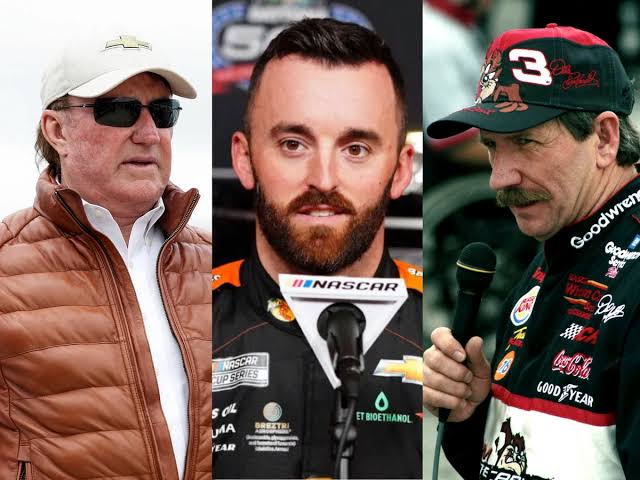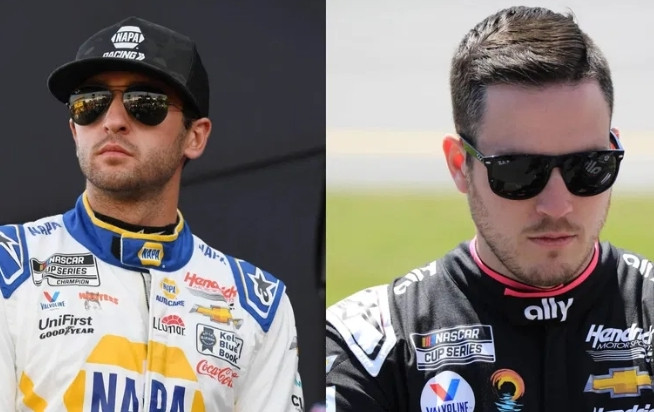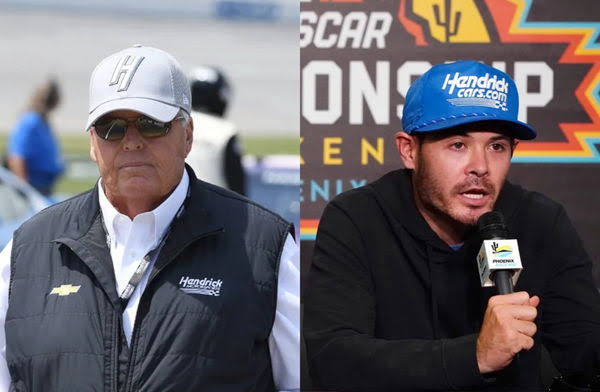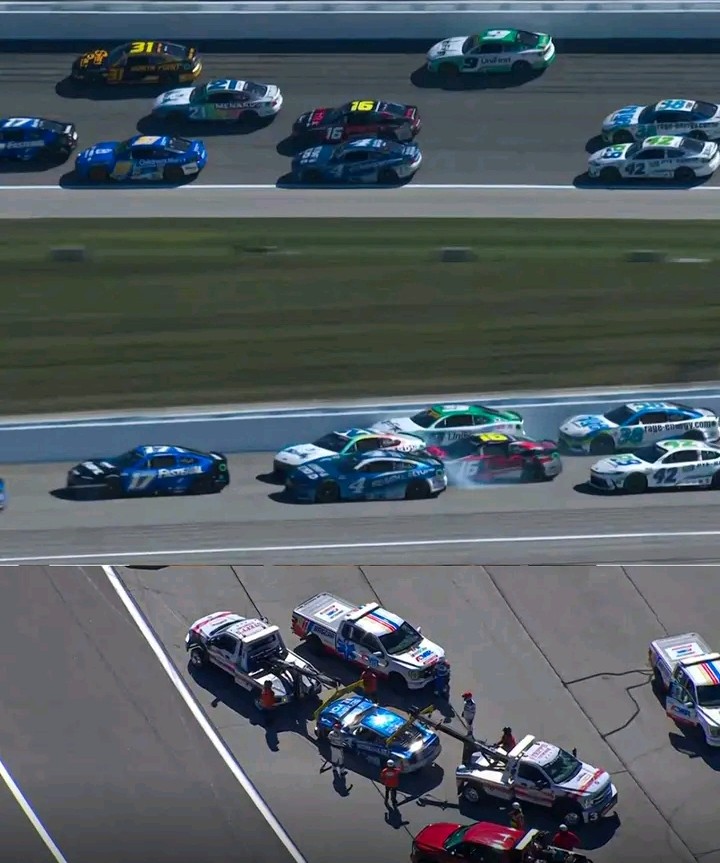Growing up in the shadow of legendary figures can be a daunting challenge for emerging talents. Many stars hailing from illustrious families have encountered similar struggles, constantly scrutinized and compared under a magnifying glass. Despite the immense pressure to excel, their accomplishments often go unrecognized. Austin Dillon is one such individual, shaped by the influence of his grandfather, Richard Childress, and the iconic Dale Earnhardt, who have guided him since his early years. At 34, Dillon embraces the legacy of these remarkable figures, feeling prepared to rise to the occasion.
Dillon expresses appreciation for his roots, acknowledging the rich history of Richard Childress Racing, highlighted by the triumphs of Dale Earnhardt and Kevin Harvick. However, this season has been a letdown for the team, marked by a lack of victories and a contentious race outcome. Yet, this isn’t the first time RCR has faced criticism from the NASCAR community; it’s a familiar narrative.
Throughout Dale Sr.’s career, his team was often at the center of controversy. Nicknamed ‘the Intimidator,’ Dale Sr. was known for his aggressive driving style, which drew criticism from many. While his racing techniques weren’t always the cleanest in NASCAR history, some viewed them as a testament to his competitive nature. Additionally, Richard Childress faced his share of controversies dating back to 1995, including incidents reminiscent of Dillon’s tactics at Richmond, as well as issues with drug policy compliance and crew conflicts with rival teams.
Growing up in this environment, Austin Dillon witnessed the intense drama on the track and the backlash from the NASCAR community. In a conversation with Marty Smith on Marty & McGee, Austin shared, “I’ve grown up in a family that was very controversial with Dale Earnhardt Sr going into the track every weekend. And a lot of people disliked Dale for a long time.” This was a challenging reality for a child, but Dillon managed to see the bigger picture and take away valuable lessons.
“The narrative changed over time, and you can see the love that the Intimidator garnered from his fans,” Dillon noted. He learned to appreciate both perspectives and adapt his approach when faced with unfavorable situations.
Additionally, he gained this important life insight from Richard Childress, who has shown unwavering commitment to the sport throughout his life. “I take great pride in being my grandfather’s grandson because he stands firm; he always has and always will. He’s the kind of person who will be cheering from the sidelines until his very last breath, remaining involved with his race teams because his passion for this sport is unmatched.”
Now is the moment for Dillon to step up and apply everything he has learned throughout his life. As RCR gears up to contest the penalty handed down by NASCAR following the Richmond race, Dillon must gain clarity on several aspects. His main concern lies not with the penalty itself, but with the manner in which the ruling was reached.
There’s a strong argument to support Austin Dillon, especially considering his upbringing. He has grown up with privileges, which certainly has its drawbacks. As Marty Smith pointed out: “People have always had their opinions about you, and we’ve discussed this since your teenage years.”
In response, Austin highlights RCR’s history in NASCAR, recognizing that the organization has encountered tough decisions in the past. However, he notes that the current environment has shifted, with NASCAR now considering the views of various stakeholders in its decision-making process, which he perceives as a potential bias. “With the new dynamics, at least from what we’ve gathered, it seems that industry stakeholders’ opinions were factored into the decisions made this past week,” Dillon speculated.
Team owners hold accountability to every member of their team and bear a duty to each one. Dillon shared his approach to managing feedback by stating, “We need to excel in our efforts. It’s our obligation to RCR and all our partners to navigate this appeal process effectively, and that’s exactly what we intend to do.”
Do you believe that the views from the industry played a role in NASCAR’s decision? Share your thoughts with us.




